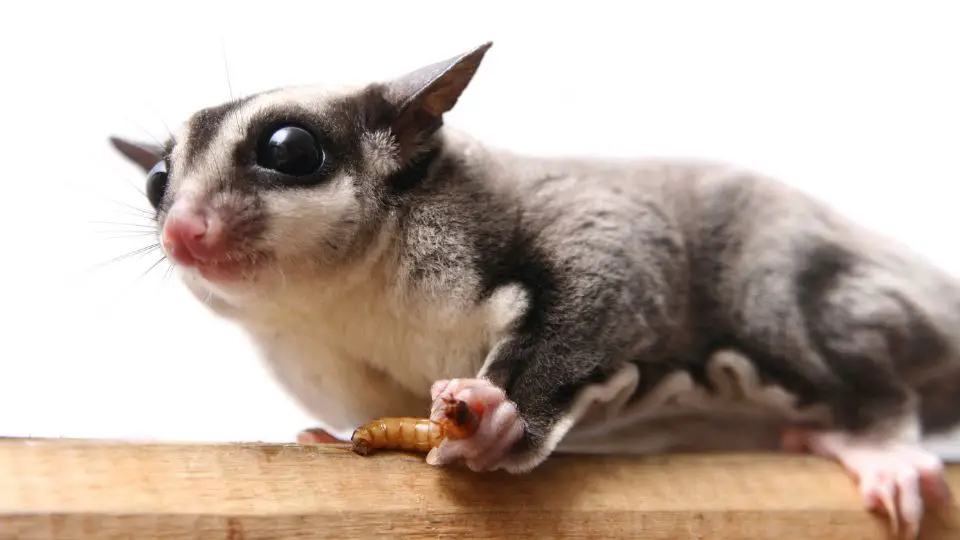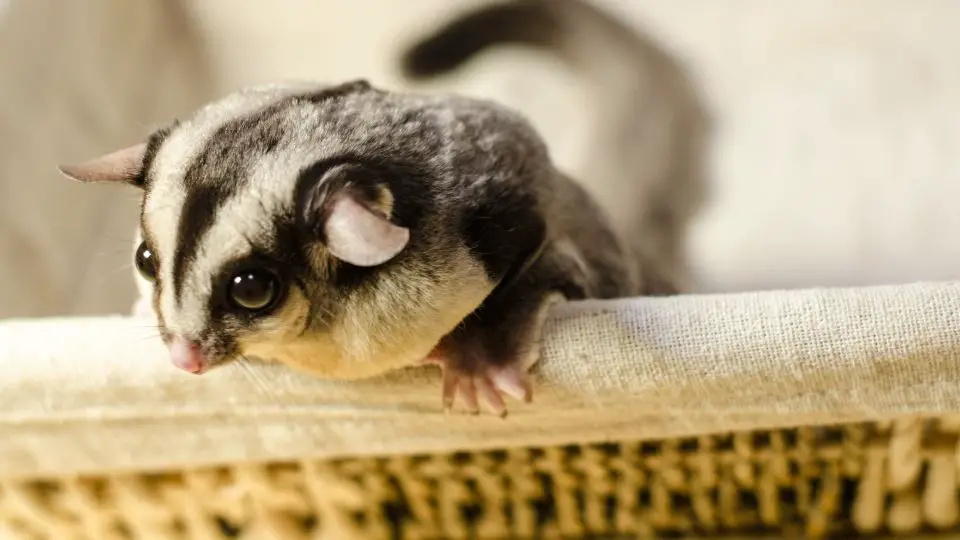Sugar gliders are active during the night. Most of the night is spent playing, feeding, and socializing. While they look like walking cuteness overload to us, in the wild, they are delicious meals for predators. Sugar gliders become nocturnal as a defense mechanism to avoid predators that are mostly active during the day.
Because night is their active period and because they are not domesticated animals, sugar gliders won’t always be completely silent. What you can do, however, other than getting used to their barking interrupting your sleep, is to make sure that all their needs are met, so they will be as happy and as quiet as possible overnight.
A comprehensive list of all the reasons why sugar gliders bark can be found here.
What to do to keep sugar gliders’ bark to a minimum
1. Keep changes to a minimum
Sugar gliders are sociable animals that live in groups in the wild. They bark to communicate with the rest of the pack. For example, if they detect a danger, they will use their barks to inform the others about it. When they’re in captivity, they can imitate this behavior when confronted with someone or something they are unfamiliar with. When you initially get them, and they aren’t accustomed to your presence, they can do this as well because of your presence.
While there is not much at night that can be identified by them as dangerous, you can prevent warning barking by eliminating any factor that can abruptly impact the sugar gliders’ surroundings. Use blackout curtains in their sleeping area, for example, to prevent them from seeing possible car flash lights from outside.Keep other pets out of that room to prevent them from making sudden movements or noises that could scare the sugar gliders. Make sure that no object is off balance and in danger of falling during the night. Eliminate odor dispenser automatic gadgets that go off suddenly from time to time. Anything that would disrupt the silence of the night, should be avoided as much as possible
2. Changing the Sleeping Patterns of Your Sugar Glider
Some might be tempted to try and change the sleeping patterns of their sugar gliders so that they would fit the human circadian cycle.
While changing their sleeping habits is doable, it is not recommended nor optimal for their health. They’ve evolved to be nocturnal animals, so their internal circadian rhythms are synced with the sun’s rising and setting.
It’s also never a good idea to wake up your glider while he’s sleeping. They will become stressed as a result of this, and they will become irritated and probably bite.
If you do wish to adjust their sleeping patterns and routine, you should do so gradually and not too drastically.
There are a few things you can do to help your pet get up early.
Sugar glider’s cage must be in an environment with natural day-to-night cycles.
Your glider will naturally be awake when it is dark outside. You may manage this by maintaining a light near their enclosure when you need them to sleep.
You may persuade your glider to wake up by using blackout curtains or shades. Putting food in their cage encourages them to wake up when necessary.
3. Feed them
Of course, these little cuties will be noisy when hungry. You can adjust their eating habits so they will expect you to feed them right before you get to sleep. This way, you make sure that it will be a while before they are hungry again.
Sugar glider owners feed their pets once a day at nightfall, while others feed them twice a day, in the morning and evening. This is entirely dependent on the preferences of your sugar glider. If they seem hungry again in the morning, try feeding them a small bit of food first thing in the morning and then more in the evening.
Regardless of how you decide to feed your sugar gliders, it will help reduce the chances of being awakened by their barks if they are well fed. Also, always make sure that they have fresh water.

Although it might seem a paradox that sugar gliders will communicate with each other, thus making noise during the night, they are social little creatures who will scream much louder if they are alone. Please, never buy just one sugar glider. They need to be at least two in order for them to be happy.
A sugar glider’s bark is not to be fought against.
Before getting sugar gliders, you need to make peace with the fact that your sleep might not be the same, as the barks of sugar gliders can’t be completely stopped for good. If you are not OK with this, maybe you could consider other pets.
On the other hand, the barks are cute sounds, like the ones from a squeeze toy or the ones from a very small breed of dog. Even if they disturb your sleep, it might not be as annoying as some fear. Plus, it is not mandatory to keep them in the same room where you sleep. Actually, it is OK to keep them in a separate room, as far as possible, if you are trying to get a full night’s sleep.
Always keep in mind that in the wild, the main purpose of a sugar glider’s bark is to warn others about dangers; as long as there is nothing in their surroundings that can be perceived as dangerous, the amount of their barking won’t be something to worry about. When they bark louder, it’s just helping you to understand that there is something you need to do to increase your glider’s happiness.
But (there is a but), also keep in mind that, just like us humans, small pets also have unique character and personality traits; some might be more communicative than others, more chatty, more noisy. Others, not so much. There is not much you can do about this, but remember that when you sign up to live with sugar gliders, you also sign up for the possibility of being woken up from time to time by them.
Conclusion
Sugar gliders are mostly quiet creatures, yet they do have the potential to vocalize. Most people are familiar with sugar gliders at various times when they are terrified, agitated, or nervous, and they may vocalize on those occasions. Sugar Gliders have a raspy barking sound that they will produce repeatedly when they are anxious, fearful, or in situations where they are unhappy with their surroundings. Nevertheless, sugar gliders are not seen as noisy or obstructive pets, so as long as they have their needs met, they won’t be disrupting your sleep that much or that often.







